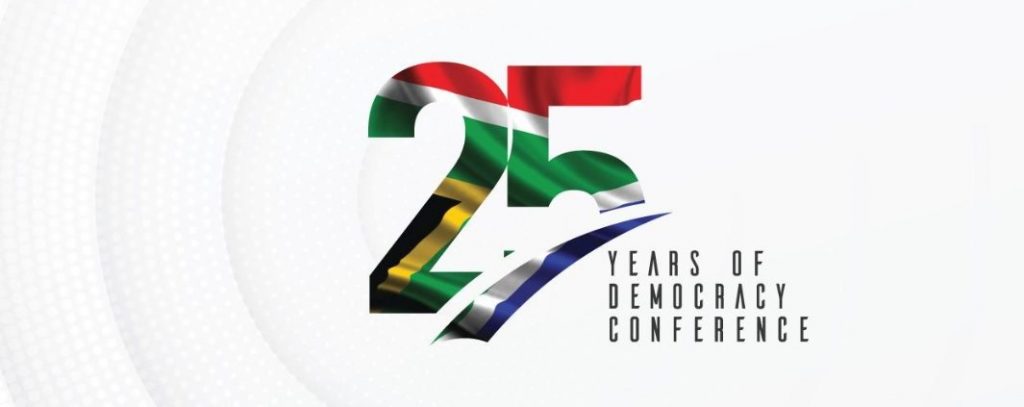
A two-day conference is now underway to reflect on the first 25 years of democracy and how the country can map the next quarter.
To know where one is going, they must know where they come from – so the saying goes.
This encapsulated the aim and purpose of the conference held by research institute Mapungubwe Institute for Strategic Reflection (MISTRA), titled ’25 Years of Democracy’.
The two-day conference, held in partnership with the Presidency and other stakeholders, will provide an in-depth reflective analysis and report on the past quarter of democracy and how the country can map the next 25 years.
It therefore seeks to review the strides made on issues of governance and leadership, socio economic transformation, citizenship and identity.
Addressing the official opening of the conference on Tuesday, President Cyril Ramaphosa said while the conference offers an opportunity to take stock of achievements, it is also a platform to identify the challenges, opportunities and tasks of the present and the future.
“Research and academic institutions have a critical role to play in advising government [and] in providing the necessary data that informs our planning models.
“As I said in the State of the Nation Address a few weeks ago, this is a government that is not afraid of new ideas, and of new ways of thinking,” said the President.
Leveraging on collaborative intellectual efforts, the President highlighted that fundamental to the task of nation building is the removal of race, gender and class as determinants of economic and social advancement.
“It is about substantially reducing inequality and creating a fairer, more just society,” said the President.
Reducing poverty and inequality and growing the economy are among the issues highlighted as ways to build on the country’s achievements and to better prepare for the next 25 years.
The President emphasised that the National Development Plan (NDP) remains government’s lodestar in moving the country forward.
“Attainment of the NDP’s Vision 2030 rests on having an educated, skilled and capable workforce. To produce more graduates in the critical skills needed by our economy, we have to work more closely with universities, TVET colleges and other educational institutions,” said the President.
The President punted the need for government to fast track the implementation of its policies.
“We have to reflect as government, particularly on whether our implementation model in its current iteration has effectively met our development needs.
“In attempting to do too much and not coordinating our actions within and between departments, we have been found wanting,” he said.
Sithembile Mbete, a Political Science Lecturer at the University of Pretoria, echoed the President’s sentiments on implementation and the need for structural reform.
“Structural change is fundamentally restructuring your society so it enables the people in their teens and twenties, and doesn’t destroy them,” she said.
University of Johannesburg Vice Chancellor Tshilidzi Marwala emphasised the need for government, in preparation for the next quarter of democracy, to be cognisant that the world of work is shrinking.
“If you look at unemployment in South Africa, it’s because we have been deindustrialising. If we are to become relevant again, we need to find what makes us competitive,” he said.
The official review of the 25-Year government report will also be presented at the two-day conference.
Minister in the Presidency Jackson Mthembu will officially close the conference on Wednesday.